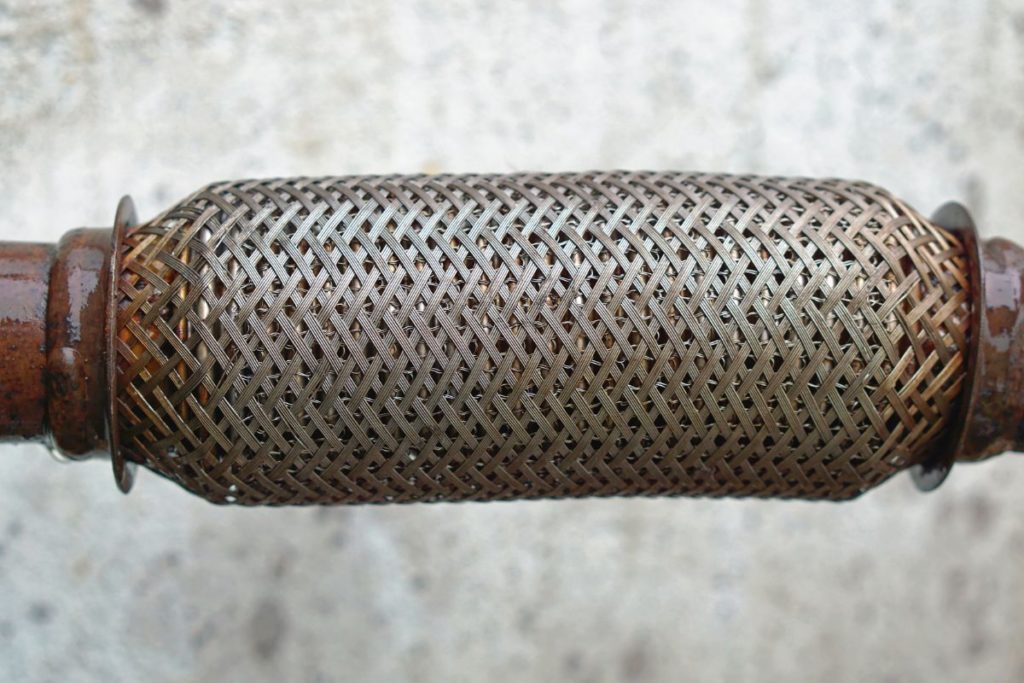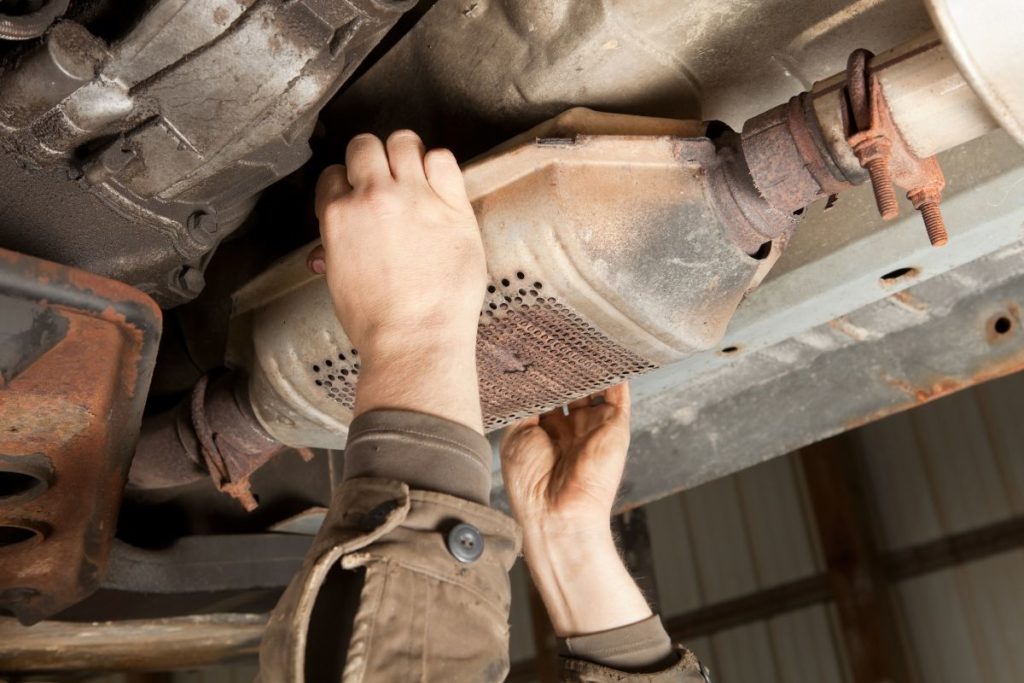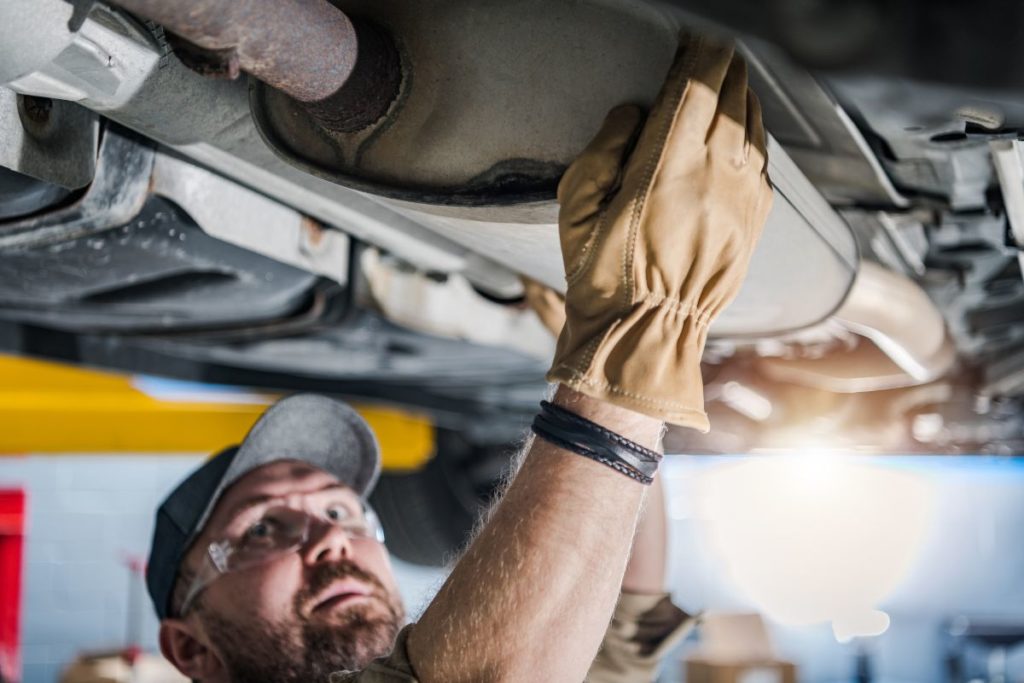*This post may contain affiliate links. As an Amazon Associate we earn from qualifying purchases.
Ah, the minivan. The ultimate vehicle for hauling around kids, groceries, and all of the other various items that seem to accumulate in our lives.
But as practical and popular as they are, there’s still one question that seems to plague minivan owners everywhere: do these things even have catalytic converters?
Well, allow us to put this age-old conundrum to rest once and for all.
Virtually all minivans on the road today have a catalytic converter installed on them. Catalytic converters have been required in passenger vehicles for several decades, and minivans are definitely considered passenger vehicles.
So any modern minivan model you come across will be equipped with a catalytic converter.
However, it’s worth noting that older minivan models may not have catalytic converters. If you’re in the market for a used minivan, it’s important to check and confirm that it has a catalytic converter. Not only is it a good idea for the environment, but it may also be a legal requirement in your region.
So you now know that most minivans have a catalytic converter but what even are they? In layman’s terms, it’s a fancy little device that’s installed in a vehicle’s exhaust system and helps reduce the amount of harmful emissions that are released into the air.
Essentially, it’s like a superhero for the environment, saving the day (and our lungs) one exhaust pipe at a time.
Now, you may be thinking, “But wait, aren’t all vehicles required to have these things?” And you’d be right – for the most part. Catalytic converters have been mandatory in passenger vehicles since the 1970s, so it’s pretty likely that your daily driver (whether a minivan or any other vehicle) has one.
Even some vehicles older than 1970 had a catalytic converter but they were required to have one until then.
In the rest of this blog post, I’ll be tackling all of your burning questions about catalytic converters and minivans. By the end of it, you’ll be a verifiable expert on the topic (or at least, you’ll be able to confidently spout off some facts at your next minivan owner meet-up).
First things first how can you tell if your minivan has a catalytic converter?

How to tell if a minivan has a catalytic converter
So, how can you tell if your minivan has a catalytic converter? There are a few different methods you can try.
One option is to simply take a look at the exhaust system. The catalytic converter is typically located in the exhaust pipe, so you should be able to see it if it’s there.
It will likely be a cylindrical shape with a honeycomb structure inside.
Another option is to check the vehicle’s documentation and records. This might include the owner’s manual, the vehicle’s registration, or any service records.
These documents should mention the presence of a catalytic converter.
If you’re still unsure, you can always seek the advice of a mechanic or dealership. They should be able to confirm whether or not your minivan has a catalytic converter.

What is a catalytic converter?
As I mentioned earlier, a catalytic converter is a device that’s designed to reduce the amount of harmful emissions released by a vehicle. It does this by using a chemical reaction to convert those emissions into less harmful substances, like water vapor and carbon dioxide.
But how does it work, exactly?
Well, the catalytic converter is made up of a ceramic or metal honeycomb structure that’s coated with a mix of precious metals, like platinum and palladium. As exhaust gases pass through the converter, they come into contact with these metals and undergo a chemical reaction that transforms the harmful substances into something less harmful to the environment (and to us).
It’s worth noting that catalytic converters aren’t a new invention – they’ve been around since the 1950s. However, it wasn’t until the 1970s that they became mandatory in passenger vehicles in the United States.
Since then, they’ve become standard equipment on most vehicles, including minivans.
So with older vehicles, they do not have catalytic converters while all new vehicles do have them.

Why are catalytic converters important?
We’ve established that catalytic converters are good for the environment, but what does that actually mean? Well, for starters, vehicle emissions are a major contributor to air pollution.
According to the Environmental Protection Agency (EPA), transportation is the largest source of air pollution in the United States. And while that may not be surprising given the sheer number of cars, trucks, and buses on the road, it’s still a pretty significant problem.
Air pollution has been linked to a range of negative health effects, including respiratory issues, heart disease, and even cancer. And while we can’t control the emissions from every single vehicle on the road, we can do our part by making sure our own vehicles are as environmentally friendly as possible.
Do all cars have catalytic converters?
As I mentioned earlier, the majority of vehicles on the road today are required to have catalytic converters. However, there are a few exceptions to this rule.
For example, some older vehicles may not have catalytic converters, either because they were made before the mandatory installation requirement or because they were grandfathered in and allowed to continue operating without them.
Additionally, certain types of specialty vehicles, like off-road vehicles and heavy-duty diesel trucks, may not be required to have catalytic converters.
It’s worth noting that even if a vehicle is not required to have a catalytic converter, it may still be a good idea to have one installed. While it may not be a legal requirement, it can still help reduce emissions and improve air quality.
Car Catalytic Converters Stolen
Oh boy, where do I even begin with this one? Catalytic converter theft is the latest and greatest crime trend sweeping the nation. It’s like a game of whack-a-mole for the police, except instead of trying to hit a mole, you’re trying to keep your car from getting its catalytic converter stolen.
And let me tell you, it’s not an easy game for the police to win. This is especially true because the thieves can have it off your car in just minutes!
But why, you may ask, are these thieves so obsessed with catalytic converter theft? Well, it’s because they contain precious metals like platinum, palladium, and rhodium that can be sold for a pretty penny. no matter your area.
So, these stolen catalytic converters are essentially scrapped for the metal value at a local junkyard in the area where they are stolen. These converter thefts are happening all of the time like these converter thieves in some post-apocalyptic wasteland. But instead of risking their lives in a dangerous wasteland, they’re just sneaking around in parking lots and under cars.
How fancy.
And the worst part is, these thefts are happening left and right. It’s like these criminals have formed some sort of catalytic converter theft ring.
They’re like a secret society, but instead of trying to take over the world, they’re just trying to take over your car’s exhaust system. It’s like they’re trying to start their own little “Car Catalytic Converter Kingdom.”
But fear not, dear readers. There are ways to protect your car from these dastardly thieves. You can install a catalytic converter lock, or park in well-lit areas, or only park where there is some security. Either that or you can just keep your fingers crossed and hope that these thieves don’t get to your car first.
Or, you know, just use a bicycle. Problem solved.
One good thing (if you want to call it that) is that if you have comprehensive auto insurance it will cover the cost of stolen catalytic converters. However, most people have an insurance deductible higher than the cost of replacing their catalytic converters so it may or may not be worth it to open a claim.
So if your catalytic converter has been stolen you will need to contact your insurance company about the theft with your personal information (or read your policy) before you will know if you should opt to file a claim for your stolen catalytic converter.
Final Thoughts
It’s safe to say that most modern minivan models do have catalytic converters. However, it’s always a good idea to double-check and confirm the presence of a catalytic converter, especially if you’re purchasing a used minivan since it could have been stolen off the vehicle while it sat on the lot.
While catalytic converters may not be the most exciting topic, they serve an important purpose in reducing emissions and improving air quality.
So the next time you’re driving your trusty minivan, take a moment to appreciate that little superhero (the catalytic converter) working hard under the hood (or rather, under the exhaust pipe).
